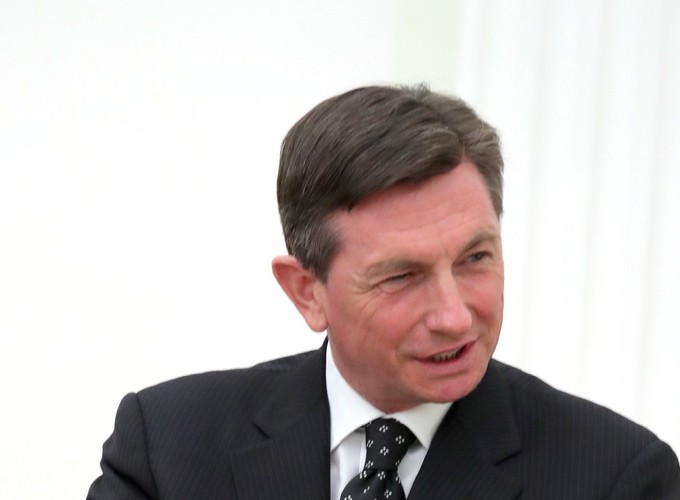Blog post published by presidential-power.com
A general election was held in Slovenia on 13 July. This was the second early election in three years and came only 13 months after Alenka Bratušek formed a four-party coalition government in March 2013. The Slovenian head of state has very few powers and is among the weakest of all directly elected presidents in the world. Nevertheless, President Pahor played a key role in the timing of the general election, which is usually seen as one of the most important powers held by party leaders and heads of government.
All established political parties lost seats in the snap election, while the big winner was the six-week-old political party founded by Miro Cerar, a newcomer in national politics. The centre-left Positive Slovenia (PS) party, which topped the poll in the 2011 general election, failed to pass the 4% electoral threshold this time.
The State Election Commission has reported the following partial results:
- Miro Cerar Party (SMC) – 34.61%, 36 seats (New)
- Democratic Party (SDS) – 20.69%, 21 seats (-5)
- Pensioners’ Party (DeSUS) – 10.21%, 10 seats (+4)
- United Left – 5.97%, 6 seats (New)
- Social Democrats (SD) – 5.95%, 6 seats (-4)
- New Slovenia (NSi) – 5.54%, 5 seats (+1)
- Alliance of Alenka Bratušek (ZaAB) – 4.34%, 4 seats (New)
- Italian and Hungarian minorities also hold one seat each in the 90-seat Slovenian Assembly.
The early election was triggered by intra-party tensions. Alenka Bratušek stepped down as prime minister in early May, after she lost the leadership of the Positive Slovenia party to the party founder and Ljubljana Mayor Zoran Janković. A political crisis ensued because, similarly to 2011 when Positive Slovenia was not able to win the support of a majority in the parliament despite holding the largest number of legislative seats, none of the coalition partners was willing to accept Zoran Janković as head of government.
Most political actors agreed that the political deadlock could only be resolved by calling early elections. However, political parties did not want early elections to take place in the middle of the summer, when many voters are away on holidays. President Pahor for his part did not want to extend the period of limited powers that characterises caretaker governments. Given the legal conditions under which new elections can be called, the president found himself caught in a political conundrum: how to rush new elections while respecting constitutional deadlines? The key was in the role played by the head of state in the process of PM nomination and election by the parliament.
According to the Slovenian Constitution, should the government resign or lose a confidence vote, the parliament must elect a new prime minister within thirty days (art. 117). The head of state has the first right of nomination. If the PM-designate put forward by the president does not receive the support of the majority of all deputies, the head of state can nominate somebody else (or the same candidate again) within the next 14 days. However, this time parliamentary groups of at least ten deputies can also make alternative nominations. If no candidate receives a majority of the votes cast by all deputies (or by those deputies who are present if new election rounds are demanded by a majority of deputies who are present), then the president dissolves the assembly and calls a new parliamentary election (art. 111). A new parliament must also be elected no later than two months after the dissolution of the previous one (art. 81).
After PM Bratušek formally announced the parliament her decision to step down on 8 May, President Pahor shortened the 30-day period he had to nominate a new prime minister. On 14 May he notified the parliament that he would not put forward a PM-designate. Subsequently, all parliamentary groups also agreed to refrain from nominating a new prime minister. Acknowledging that no new PM-designate had been put forward after the resignation of Alenka Bratušek, the head of state dissolved the National Assembly on 1 June and chose 13 July as the date of the snap general election.
The president’s decision was nevertheless challenged at the Constitutional Court. A non-parliamentary party argued that the president should have dissolved the parliament as soon as he gave up his right to nominate a PM-designate instead of waiting another 14 days for parliamentary nominations to be made. Other groups claimed that holding elections during the summer undermined voting rights. The Court rejected all challenges and upheld the presidential decree setting 13 July as the election date.
Thus, President Pahor’s interpretation of his constitutional power to nominate and to refrain from nominating a PM-designate granted him unusual influence upon choosing the date of the most important political contest in Slovenia. Granted, the smoothness and rapidity with which early elections were organized would not have been possible without the co-operation of parliamentary parties. Nevertheless, this episode is indicative of the considerable influence that constitutionally weak heads of state may have over the political system under critical circumstances.
The president and Miro Cerar, who is seen as the most likely PM-designate, will meet on Wednesday afternoon. President Pahor first announced their meeting on Twitter, shortly after the election results were released on Sunday evening.


